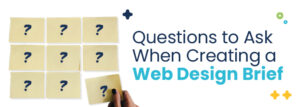How to Start Your Career as a Full Stack Freelance Developer
Embarking on a career as a full stack freelance developer can be an exciting journey filled with opportunities. This guide provides essential steps, practical tips, and valuable insights that will help you successfully kickstart your freelance career in web development.
Understanding Full Stack Development
Before diving into freelancing, it’s crucial to understand what full stack development entails. Full stack developers work on both the front-end and back-end of web applications. This dual expertise allows them to create comprehensive web solutions. Below are the key components of full stack development:
- Front-End Development: Involves creating the visual elements of a website using languages like HTML, CSS, and JavaScript.
- Back-End Development: Focuses on server-side logic and database management with languages such as Python, Ruby, Node.js, or PHP.
- Database Management: Utilizing databases like MySQL, MongoDB, or PostgreSQL to store and retrieve data efficiently.
Step-by-Step Guide to Becoming a Full Stack Freelance Developer
1. Acquire Necessary Skills
Your first step to becoming a full stack freelance developer is to master the required skills. Here are some vital skills you should focus on:
- Proficient in HTML, CSS, and JavaScript.
- Knowledge of frameworks like React.js or Angular for front-end.
- Back-end programming skills (e.g., Node.js, Express, or Django).
- Understanding of databases like MySQL or MongoDB.
- Basic knowledge of version control systems like Git.
2. Build Your Portfolio
A robust portfolio is crucial for attracting freelance clients. Here’s how to build one:
- Create personal projects: Develop a few applications that showcase your skills.
- Contribute to open source: Collaborate on platforms like GitHub to gain experience.
- Utilize online platforms: Showcase your projects on sites like GitHub, GitLab, or your personal website.
3. Choose Your Freelancing Platform
When you’re ready to start freelancing, choose the right platform to find clients. Popular websites include:
| Platform | Description | Best For |
|---|---|---|
| Upwork | A freelance marketplace with diverse projects. | Beginners to advanced developers. |
| Freelancer | Global freelance platform with various job types. | Budget-conscious clients and developers. |
| Fiverr | Offers services at fixed prices. | Showcase specific skills or services. |
4. Set Your Rates
Determine how to price your services. Research market rates for full stack developers in your region and consider your skill level, experience, and project complexity. Common pricing methods include:
- Hourly Rate: Charge for the number of hours worked.
- Fixed Price: Set a price for the entire project.
5. Market Yourself
Marketing is essential in attracting clients. Utilize these strategies:
- Build a professional website that displays your portfolio and services.
- Utilize social media platforms like LinkedIn to connect with potential clients.
- Network within tech communities and forums.
Benefits of Being a Full Stack Freelance Developer
Choosing to be a freelance developer comes with numerous benefits, such as:
- Flexibility: Set your own hours and work from anywhere.
- Diverse projects: Gain experience in various industries and technologies.
- Potentially higher income: Charge premium rates for your versatile skill set.
Practical Tips for Success
Here are some practical tips to boost your freelance career:
- Stay updated with industry trends and technologies.
- Communicate clearly with clients to manage expectations.
- Never stop learning; invest in courses and certifications to enhance your skills.
Case Studies: Success Stories
Numerous freelancers have successfully launched their careers in full stack development. Consider Sarah, who transitioned from a 9-to-5 job to freelancing. She used her downtime to learn new languages, built a robust portfolio, and started landing clients within a few months. Her journey underscores the importance of dedication and continuous learning in the field.
My First-Hand Experience
Transitioning from a full-time job to being a full stack freelancer was transformative. Starting small with side projects while maintaining my job helped me build confidence and experience. Gradually, I transitioned to full-time freelancing, enjoying the benefits of flexibility and control over my work life. I encourage aspiring developers to take the leap—your skills and passion will pave the way for success.
Conclusion
Starting a career as a full stack freelance developer requires a blend of technical skills, strategic marketing, and ongoing learning. By following the outlined steps and tips, you can successfully navigate this fulfilling career path. Embrace the journey, enhance your skills continuously, and leverage the flexibility freelancing offers. Your adventure in web development awaits!










